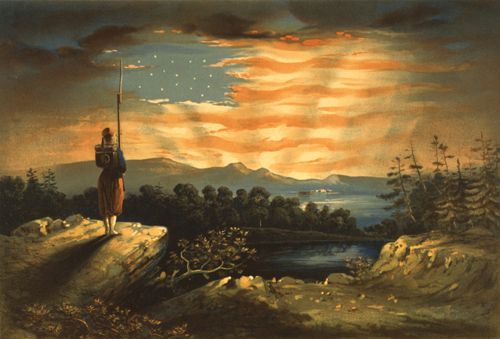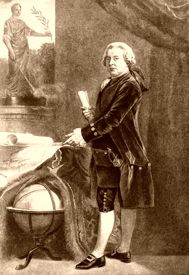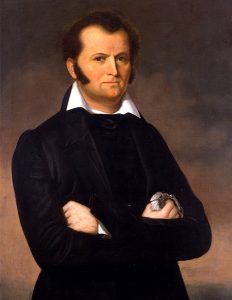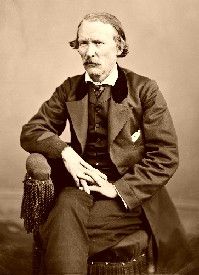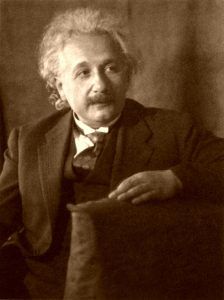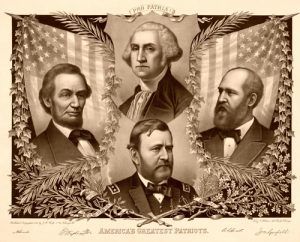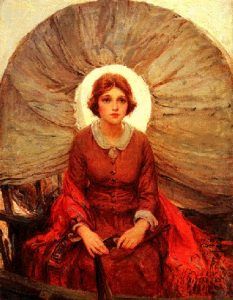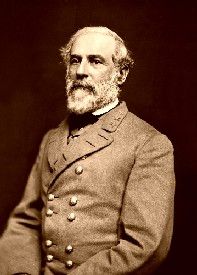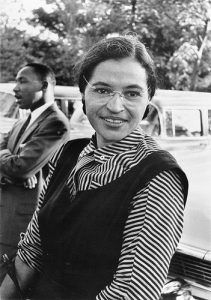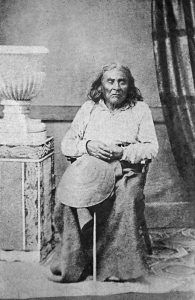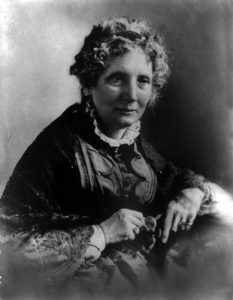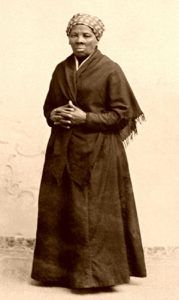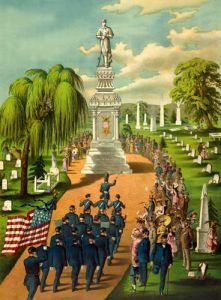Hail, Columbia! happy land!
Hail, ye heroes! heaven-born band!
Who fought and bled for Freedom’s cause.
— Joseph Hopkinson
Hero: A person of distinguished courage or ability, admired for his/her brave deeds and noble qualities.
Patriot: A person who loves, supports, and defends his or her country and its interests with devotion.
Heroes and patriots in the United States are made every day, a fact that has occurred since the first man set foot on the soil of this great nation. From the most minor deeds of kindness to the brave soldiers who have given their lives for this country, hundreds of thousands of men and women come from every race, religion, and ethnic group. Their stories and histories are varied, their actions and deeds diverse, leaving their marks on every part of our culture and heritage. They are law officers, politicians, soldiers, inventors, explorers, artists, activists, writers, business people, and ordinary folks. Some are famous — most are not.
We cannot begin to list them all here. But their “legendary” deeds and accomplishments belong on the pages of Legends of America, and to that end, this page will continue to grow.

U.S. Heroes & Patriots:
John Adams (1735-1826) – Vice President to George Washington, 2nd U.S. President, and Founding Father of the United States.
John Quincy Adams (1767-1848) – The son of Founding Father John Adams, he was a politician and diplomat and served as the 6th President of the United States.
Samuel Adams (1722-1803) – One of the United States Founding Fathers, Adams was a statesman, political philosopher, and leader of the movement that became the American Revolution.
Also See: My Dinner with Samuel Adams
Susan “Doc Susie” Anderson (1870-1960) – One of the first female pioneer physicians in the West.
Susan Brownell Anthony (1820-1906) Leader in the American Anti-Slavery Society, she later turned her life’s devotion to women’s suffrage and, with Elizabeth Cady Stanton, founded the National Woman Suffrage Association and the newspaper Revolution.
Nathaniel Bacon (1640s-1676) – A wealthy colonist of the Virginia Colony who instigated Bacon’s Rebellion of 1676.
Anne Hennis Trotter Bailey (1742-1825) – Better known as “Mad Ann,” she was a colorful figure, scout, spy, and Indian fighter during the colonial Indian Wars and the American Revolution.
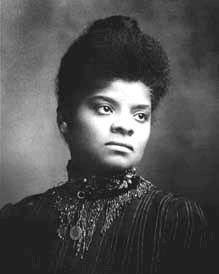
Ida B. Wells Barnett
Ida B. Wells Barnett (1862-1931) – A black journalist and militant civil rights leader, she co-founded the NAACP and was the first president of the Negro Fellowship League.
Clara Barton (1824-1912) Called the “Angel of the Battlefield” for her first aid heroism during the Civil War, she was instrumental in founding the American Red Cross.
Alexander Graham Bell (1847-1922) – Scientist, inventor, engineer, and innovator credited with inventing the first practical telephone.
Mary Bickerdyke (1817-1901) – An energetic heroine whose sole aim during the Civil War was to care for wounded Union soldiers more efficiently.
Mary McLeod Bethune (1875-1955) The daughter of former slaves, Mary became a writer, educator, champion of humanitarian causes, and advocate of civil rights and education for Blacks.
Daniel Boone (1734-1820) – Frontiersman, pioneer, surveyor, and Indian Fighter who blazed the trail known as the Wilderness Road in 1775.
James Bowie (1796-1836) – An aggressive frontiersman, pioneer, explorer, and commander of the volunteers at the Alamo, where he died.
Buffalo Soldiers – Though African Americans have fought in various military conflicts since colonial days, they did not receive the nickname “Buffalo Soldiers” until they began to battle Cheyenne warriors in 1867.
Benjamin Brown (1859-1910) – Buffalo Soldier who fought bandits in the Wham Paymaster Robbery and was awarded the Medal of Honor.
Andrew Carnegie (1835-1919) – Scottish-American industrialist, businessman, entrepreneur, and prominent philanthropist.
Christopher “Kit” Carson (1809-1868) – Carson was a daring and brave explorer, mountain man, trapper, scout, soldier, and buffalo hunter.
George Washington Carver (1864-1943) – American scientist, botanist, educator, and inventor.
George Rogers Clark – (1752-1818) – Soldier from Virginia and the highest-ranking American military officer on the northwestern frontier during the American Revolutionary War.
William Clark (1770-1838) – Explorer and geographical expert who co-led the Lewis and Clark Expedition.
Henry Clay (1777-1852) – Nineteenth-century American statesman, orator, negotiator, and politician dubbed one of the greatest senators in U.S. history.
Samuel Langhorne Clemens, aka Mark Twain (1835-1910) – Author and humorist, he is sometimes called the “Father of American Literature.”
Davy Crockett (1786-1836) – Frontiersman, explorer, and American folk hero Crockett represented Tennessee in the U.S. Congress, served in the Texas Revolution, and died at the age of 49 at the Battle of the Alamo.
Thomas Alva Edison (1847-1931) – Inventor, scientist, and businessman who developed many devices that greatly influenced life worldwide.
Dwight David “Ike” Eisenhower (1890-1969) – A five-star general in the United States Army and the 34th President of the United States. Eisenhower ranks highly among former U.S. presidents in terms of approval rating.
Albert Einstein (1879-1955) – German-born Swiss-American theoretical physicist, philosopher, and author widely regarded as one of the most influential and best-known scientists and intellectuals. He is often regarded as the father of modern physics.
Ralph Waldo Emerson (1803-1882) – Essayist, philosopher, and poet, he is best remembered for leading the Transcendentalist movement of the mid-19th century.
Thomas Ewing, Jr (1829-1896) – Military officer, Free-State advocate, and first Chief Justice of the State of Kansas
Henry Ford (1863-1947) – Inventor who introduced the Model T automobile, revolutionizing transportation and American industry, and founded the Ford Motor Company. During his lifetime, he was awarded 161 U.S. patents.
Benjamin Franklin (1706-1790) – Intellectual, author, politician, scientist, inventor, civic activist, statesman, soldier, and diplomat; Franklin is noted as being one of the Founding Fathers of the United States.
Robert Fulton (1765-1815) – Fulton was an American engineer and inventor widely credited with developing a commercially successful steamboat called the Claremont.
William Lloyd Garrison (1805-1879) – Journalist and social reformer, he is best known as the editor of the radical abolitionist newspaper, The Liberator. He was one of the founders of the American Anti-Slavery Society and a prominent voice for the women’s suffrage movement.
“A hero is someone who understands the responsibility that comes with his freedom.”
— Bob Dylan, American folksinger
Ulysses S. Grant (1822-1885) – American General and the 18th President of the United States, he achieved international fame as the leading Union general in the Civil War. However, he wasn’t rated well as an American President.
Nathanael Greene (1742-1786) – A major general of the Continental Army in the American Revolutionary War, Greene’s military reputation was second only to General George Washington’s.
Nathan Hale (1755-1776) – Soldier for the Continental Army during the American Revolutionary War, he is known as America’s first spy. He is best remembered for his speech before being hanged following the Battle of Long Island, in which he said, “I only regret that I have but one life to lose for my country.”
Alexander Hamilton (1755-1804) – Aide-de-camp to General George Washington during the American Revolution, Founding Father of our country, economist, and political philosopher.
William Henry Harrison (1773-1841) – The 9th President of the United States, military officer, and politician, he was the first president to die in office. He had the shortest tenure in presidential history. As an Army officer and governor of Indiana and Illinois territory, he fought Indians. He made harsh treaties with them, clearing the way for more westward settlement by whites. His military victories against Indians made him a hero to white Americans.
Patrick Henry (1736-1799) – Virginia Governor, a prominent figure in the American Revolution, and one of the United States Founding Fathers.
Heroines of the Southwest – No portion of our country has been the scene of more romantic and dangerous adventures than that region described under the broad and vague term the “Southwest.” Texas, New Mexico, and Arizona are vast, remote, and varied fields with which danger, hardship, wonder, and mystery are ever associated.
Heroines Across the Plains – The movement of emigration westward since the early part of the seventeenth century resembles the great ocean billows during a rising tide. Sweeping over the watery waste with a steady roll, dragged by the lunar force, each billow dashes higher and higher on the beach until the attractive influence has been spent and the final limit reached.
Heroines in the Rocky Mountains – Among these histories, which illustrate most clearly the virtues of the pioneer women, we count those that display her battling with the difficulties of the passage through the mountains, as proving that the heroine of that time may be matched with those who have lived before her in any age or clime.
Samuel Houston (1793-1863) – Nineteenth-century statesman, politician, and soldier Houston was a key figure in the Texas Revolution and acted as the first and third President of the Republic of Texas.
Thomas Jefferson (1743-1826) – The third President of the United States and principal author of the Declaration of Independence. Known for promoting the ideals of republicanism in the United States, he is considered one of the most influential Founding Fathers.
John Paul Jones (1747-1792) – The first well-known naval fighter in the American Revolution.
John F. Kennedy (1917-1963) – Commander during World War II and 35th President of the United States. He was assassinated in 1963.
Martin Luther King, Jr. (1929-1968) – Clergyman, activist, and prominent leader in the African American civil rights movement; in which he raised public consciousness of the civil rights movement and established himself as one of the greatest orators in U.S. history. He was assassinated in 1968.
Robert E. Lee (1807-1870) – Lee was a career U.S. Army officer and the most celebrated general of the Confederate forces during the Civil War.
Meriwether Lewis (1774-1809) – Explorer, soldier, and public administrator, Lewis was best known for his role as the leader of the Corps of Discovery, whose mission was to explore the territory of the Louisiana Purchase.
Abraham Lincoln (1809-1865) – Pioneer, attorney, and 16th U.S. President, he guided this country through the most devastating experience in its national history — the Civil War. He was assassinated on April 14, 1865, and died the next day. Many historians consider him to have been the greatest American president.
Charles Augustus Lindbergh (1902-1974) – Aviator, author, inventor, and explorer.
James Madison (1751-1836) – Politician, political philosopher, 4th President of the United States, and one of the country’s Founding Fathers. He was instrumental in writing the Constitution and wrote the Bill of Rights.
John Marshall (1755-1835) – Statesman, politician, and jurist who shaped American constitutional law and made the Supreme Court a center of power.
Audie Murphy (1924 – 1971) – He rose to fame in World War II as America’s most decorated hero. He received 24 decorations, including the Congressional Medal of Honor, before his 21st birthday. Murphy went on to be a world-famous Movie Star.
Thomas Paine (1737-1809) – Author, radical, inventor, intellectual, revolutionary, and one of the Founding Fathers of the United States.
Rosa Louise McCauley Parks (1913-2005) – African American civil rights activist who the U.S. Congress later called the “Mother of the Modern-Day Civil Rights Movement.”
Pocahontas (1595?- 1617) – A Powhatan Indian Princess, she was known for having assisted colonial settlers at Jamestown and allegedly saving the life of the colony’s leader, Captain John Smith.
Israel Putnam (1718-1790) – Army general who fought with distinction at the Battle of Bunker Hill during the American Revolution. Not as well-known as other historical heroes, he showed reckless courage and a fighting spirit.
Ronald Wilson Reagan (1911- 2004) – 40th President of the United States and 33rd Governor of California. He ranks highly among former U.S. presidents regarding approval rating and presidential surveys.
Bass Reeves (1839–1910) – One of the most famous and effective U.S. Deputy Marshals in Indian Territory.
Paul Revere (1734-1818) – Paul Revere is an American folk hero of the American Revolution whose dramatic horseback ride on April 18, 1775, warned Boston area residents that the British were coming.
Eleanor Roosevelt (1884-1962) Political and social reformer, humanitarian, and outspoken crusader, this First Lady championed causes of social justice worldwide and, as a United Nations delegate, chaired the United Nations Commission on Human Rights.
Theodore “Teddy” Roosevelt (1858-1919) – The 26th President of the United States, leader of the Rough Riders, naturalist, explorer, hunter, and author.
“A man’s country is not a certain area of land, of mountains, rivers, and woods, but it is a principle, and patriotism is loyalty to that principle.
— George William Curtis, American social reformer, author, and editor in the 19th Century.”
Jonas Edward Salk (1914-1995) – Medical researcher and virologist, he is best known for his discovery and development of the first safe and effective polio vaccine.
Chief Seattle, aka Sealth, Seathle, Seathl, or See-ahth (1780?-1866) – Leader of the Suquamish and Duwamish Native American tribes in present-day Washington. He was known as a great leader, orator, warrior, and negotiator.
Captain John Smith (1580-1631) – An English soldier, explorer, admiral, and author, Smith established the first permanent English settlement in North America at Jamestown, Virginia, in 1607.
Captain Myles Standish (1584?-1656) – English military officer, Mayflower passenger, and first commander of the Plymouth Colony.
Elizabeth Cady Stanton (1815-1902) Known, along with Susan B. Anthony, as one of the foremost figures of the movement for women’s equality.
Harriet Beecher Stowe (1811-1896) – Abolitionist and author, she wrote Uncle Tom’s Cabin and became influential in the political issues of slavery.
Zachary Taylor (1784-1850) – Distinguished general and 12th President of the United States, Taylor served in the War of 1812 and the Mexican-American War, earning the nickname “Old Rough and Ready.” He was elected President in 1848, the first never to have held any previously elected office. He was also the last President to hold slaves while in office. Just two years into his presidency, he died.
William B. Travis (1809-1836) – A lawyer who settled in Texas from Alabama, Travis intensely disliked Mexican rule and fought in the Texas Revolution. Fighting along with James Bowie and Davy Crockett, he was killed at the Battle of the Alamo.
Harry S. Truman (1884-1972) – Artillery officer in World War I, Senator, Vice President under Franklin D. Roosevelt, and 33rd President of the United States. Most American historians consider Truman one of the greatest U.S. Presidents.
Harriet Tubman (1815-1913) As a “conductor” on the Underground Railroad, this fugitive slave helped thousands of blacks escape north before the Civil War, during which she served as a Union nurse and military spy.
Mark Twain – See Samuel Langhorne Clemens
Sarah Rosetta Wakeman, aka Private Lyons Wakeman (1843-1864) – Disguising herself as a man, Wakeman fought in the Civil War for the Union.
Mary Edwards Walker (1832-1919) – Feminist, abolitionist, prohibitionist, alleged spy, prisoner of war, and surgeon in the Civil War; Mary is the only woman to receive the Medal of Honor.
William Alexander Anderson “Bigfoot” Wallace (1817-1899) – Served as a Texas lawman for several years before joining the Texas Rangers and soon made captain. He died on January 7, 1899.
Booker Taliaferro Washington (1856-1915) – Political leader, educator, orator, and author; he was the dominant figure in the African American community in the United States from 1890 to 1915.
George Washington (1732-1799) – First President of the United States and Commander of the Continental Army in the American Revolution.
Anthony Wayne (1745-1796) – General Anthony Wayne was an American soldier, officer, politician, and one of the United States Founding Fathers. When the American Revolution began, he adopted a military career, where his military exploits and fiery personality earned him a promotion to brigadier general and the nickname “Mad Anthony.”
Cathay Williams (1842-??) – When Congress passed an act that established the first all-Black military units, later known as “Buffalo Soldiers,” Cathay Williams became the first and only female Buffalo Soldier.
Samuel Wilson (The Origin of Uncle Sam) (17??-1854) – In September 1961, the U.S. Congress recognized Samuel Wilson as “the progenitor of America’s national symbol of Uncle Sam.”
Eli Whitney (1765-1825) – The inventor who invented the cotton gin; he helped shape the Industrial Revolution and the economy of the antebellum South.
Woman As a Pioneer – Every battle has its unnamed heroes. There are other battles and armies besides those where thousands of disciplined men move over the ground to the sounds of the drum and fife. Life itself is a battle, and no grander army has ever been set in motion since the world began than that which for more than two centuries and a half has been moving across our continent from the Atlantic to the Pacific, fighting its way through countless hardships and dangers, bearing the banner of civilization, and building a new republic in the wilderness.
Women in the Army – In the great wars of American history, there are, in immediate connection with the army, two situations in which women more prominently appear: the former is where, in her proper person, she accompanies the army as a “vivandiere,” or as the daughter of the regiment, or as the comrade and help-mate of her husband; the latter, and less frequent capacity, is that of a soldier, matching in the ranks and facing the foe in the hour of danger.
Wright Brothers – The Wright brothers, Orville (1871-1948) and Wilbur (1867-1912), are generally credited with inventing and building the world’s first successful airplane and making the first controlled, powered, and sustained heavier-than-air human flight on December 17, 1903.
Compiled and edited by Kathy Alexander/Legends of America, updated February 2024.
Also See:
Historic People Photo Galleries

